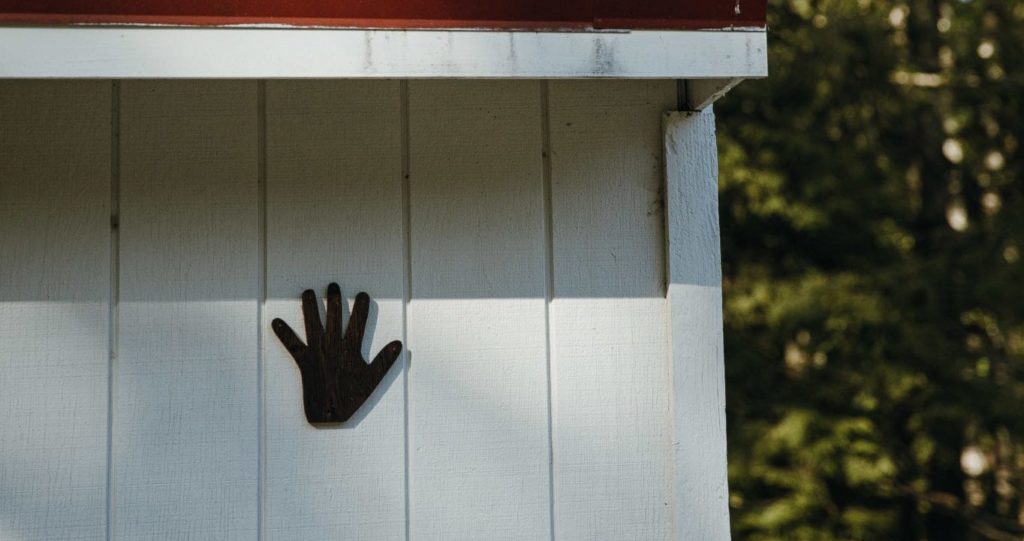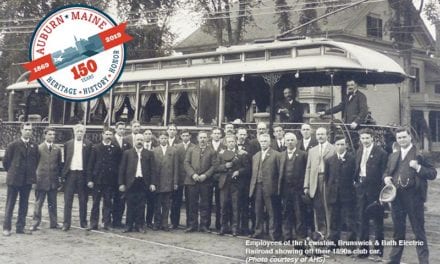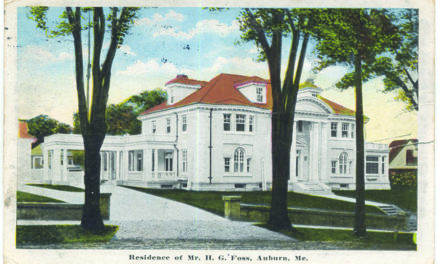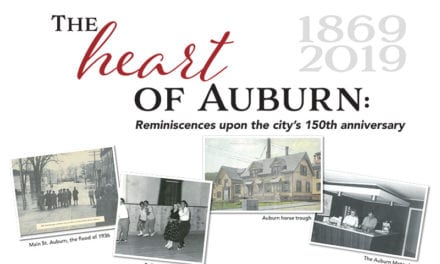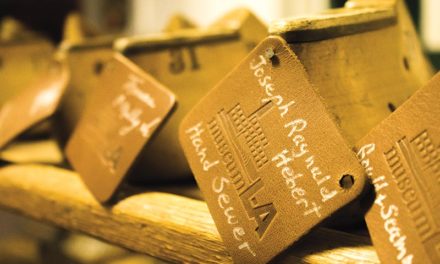By Lisa Mayer | Photography by Chelsea Briggs
One big happy family
Seventy-five years later, not only are the wives welcome at The Lisbon Left Hand Club, but so are the kids, the grandkids, and the great-grandkids. The tiny shack is now a modern clubhouse, and the men cook Mother’s Day brunch for their wives.
The Lisbon Left Hand Club, 100 member-owners strong, “really is like one big happy family,” according to Dan Martin, club vice president.
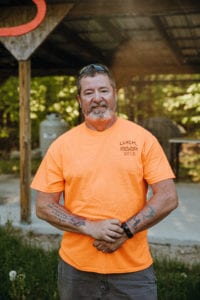
Gotta hand it to you
The Clubhouse is a comfortable gathering place with long tables, regulation dart boards, an industrial-sized kitchen, and a large welcoming bar. Over the bar are pictures of members, past and present, and, dangling down, a stained glass piece depicting a left hand.
The artwork may serve as a kind of a warning: Treat yourself to a drink, but make sure you hold it with your left hand, “or you’ll have to pay the fine.”
It used to be a nickel per offense. A quarter would pre-buy you an evening’s worth of offenses. “Now people just put down a dollar, because they know it’s going to our scholarship fund,” Martin says.
The club gives out two $500 scholarships with the money, and their horseshoe league ponies up another $500 scholarship. College-bound children of the members put the money toward tuition.
“Everyone in the club is a volunteer,” says member Cathy Proctor, holding her beer in her left hand, her right tucked safely in her pocket. Behind the bar is volunteer and longtime member Rene DuBois, bearded and twinkle-eyed.
Proctor lights up as she describes the kids’ excitement at the club’s Christmas and Easter parties, and the gala Lobster Feed that Martin himself organizes. The lobsters boil in giant pots right next to the 20-foot built-in barbecue, with its giant spit in a pit for the roasting pig.
“We do weddings here,” she adds, “and other clubs come here to hold their big events.”
Serious fun
The Lisbon Left Hand Club might be “all fun and games,” but you should know that they take fun and games seriously.
The Lisbon Left Hand Club Horseshoe League (LLHCHL) boasts a few members who are genuine horseshoe champs: Marc Ritchie and Michelle Mason are both Maine State Champions, and dart player Jim Fitzsimmons is also a state champion.
“They all started right here,” Martin says proudly. Is he, himself, any good at horseshoes? “I used to be atrocious.”
“Well he’s pretty good, now!” says Valerie Odams, league secretary. She assesses her own skills as “average average.”
Odams, herself, wasn’t volunteered, she was “voluntold,” and her web and social media skills keep everyone in the know. As secretary, she keeps the LLHCHL stats updated weekly, since it’s a handicap league. That means that the better players play with a carefully calculated handicap, so even average players have a chance to win.
It’s the pits
There are generally 20 Lisbon Left Hand Club Horseshoe League teams, with a minimum of three players on each team. Each Wednesday, teams play a match of six games. The season runs from mid-April through October, including playoffs.
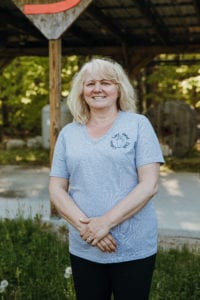
“But THIS year,” Odams sighs about the Coronavirus, “we’re hoping to open in July.”
On Wednesday evenings, members get their drinks, hot dogs, and burgers from the clubhouse, and walk across the parking lot to the newly built horseshoe pit. There are 10 open-air pits and eight picnic tables, each under its own new tin roof.
“It seems to rain every Wednesday,” Martin says ruefully. And since players play in the rain, it’s only the hot dogs and drinks that are spared from getting soggy.
Team names hint to the left-leaning humor of the players. “Our name is Lefty’s Longshots because that’s what it would take for us to win,” Martin says. Odam’s team is called P3, which she laughingly declines to explain. Other fun team names include the Lisbon Pit Wits, 2 Left Feet, and Ernie and the Ring Dings.
A stake in history
The game of horseshoes goes back to 200 B.C., around the time people started putting shoes on horses. Greek and Roman festivals included discus throwing, and some folks who couldn’t afford a discus started throwing some unused horseshoes at a stake in the ground.
Since the Romans occupied Britain for the first few centuries A.D., the game took off in England, where it was called quoits. That disc was round and made of rope or pounded metal.
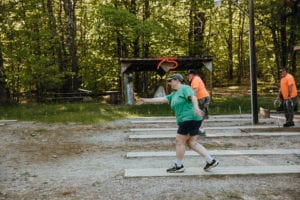
The game crossed the Atlantic to the British Colonies, and was played during the time of the American Revolutionary War.
Meantime, the English kept modifying the official regulations of the game and dimensions of the disc. The Americans, figuring they won the more important war, graciously decided to play by British rules.
Sometimes called a “soldier’s game,” horseshoes were also played throughout the time of the Civil War. Union soldiers used horseshoes from mules, and brought the game to their own backyards when they got home.
But the biggest horseshoe game in America – at least until such time as the Lisbon Pit Wits beat Ernie and the Ring Dings – took place in Bronson, Kansas, a town of 300, in the Summer of 1910. On that fine Saturday, 1,000 people showed up from all over to see the very best in “horse blood,” colts, and mules. And, according to the local Bronson paper, “The Horseshoe Game attracted much attention.” A certain team, comprised of one Mr. W.F. Jackson and one Mr. Lonnie Wilson, took the title and received $2.50 each.
No one left out
Lefty Longshot Martin says The Lisbon Left Hand Club is proud to continue “to attract much attention” to this American horseshoe tradition. They had a 75th Anniversary float in last season’s Moxie Parade.
“The Left Hand Club is a great place for families, couples, people of all ages,” Martin says. “Come for Sunday breakfast!”
What’s for breakfast? “Whatever ya’ want!” laughs Proctor, the uncontested chief cook and bottle washer. “I’m cookin’, and it’s only seven bucks!”
The club does have a homey and happy vibe. Good food, good drink, good times, good people, and good sportsmanship.
What else is left?
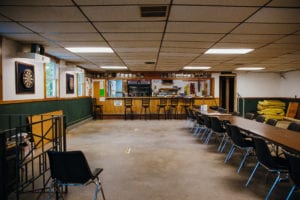
Lisbon Left Hand Club
Wagg Road, Lisbon • www.LLHCHL.com

